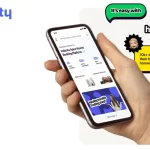As per Coursera’s Micro-Credentials Impact Report 2024 – India Edition, India is on the leading edge of the worldwide shift toward skill-based education, with 95% of higher education leaders stating that micro-credentials enhance student career opportunities. Over half (52%) of Indian institutions offering micro-credentials now provide academic credit, and nearly all (94%) plan to do so within the next five years. The trend is supported by the National Credit Framework (NCrF) of India’s National Education Policy (NEP), which allows students to earn transferable credits for academic and skill-based learning.
The report highlights the transformative impact of micro-credentials, drawing on insights from a survey of over 180 higher education executives in India as part of a global study of 1,000+ leaders from 850+ institutions. These credentials are vital to enhancing student satisfaction, strengthening institutional reputation, and driving enrollment and retention. Notably, 88% of Indian leaders feel students are more inclined to enroll in programmes that provide academic credit for industry-recognized credentials, which is higher than the global average (75%). Furthermore, 9 in 10 Indian leaders believe that micro-credentials boost student engagement and contentment while establishing their institutions as higher education innovators.
Coursera’s Learner Outcome Report 2023 also underscored the benefits of micro-credentials, revealing that 21% of Indian learners secured new jobs and 32% reported salary increases after completing entry-level Professional Certificates. Across India, universities like Vishwakarma University (Pune), Kumaraguru School of Innovation (Coimbatore), IMS Ghaziabad, and the Model Institute of Engineering and Technology (Jammu) are supplementing traditional degree programmes with industry-specific micro-credentials to produce job-ready graduates and enhance the professional growth of both alumni and faculty.
The following are more significant findings from the report.
Job Readiness
The report shows that micro-credentials are a powerful tool for universities to equip students with the skills employers seek. Nearly all (95%) higher education leaders from institutions offering micro-credentials agree that students with a micro-credential are more likely to be job-ready than those without. This is another example of how Indian institutions lead in understanding the value of micro-credentials for campus enrollment and student preparation for the workforce. Employers also notice the value of micro-credentials as they increasingly focus on skills-based hiring. Its last report revealed that employers are 85% more likely to hire a candidate with a Professional Certificate, as this helps hiring teams solve two top challenges: identifying and validating applicants’ skills.
Lifelong Learning
Almost all higher education leaders believe microcredentials support lifelong learning. Micro-credentials enhance students’ long-term career outcomes, such as employment stability and earning potential, and help alumni, faculty, and others progress in their professions. 98 percent of higher education leaders who provide micro-credentials feel they improve students’ career opportunities. Micro-credentials offer excellent upskilling potential to everyone on campus. 95 percent of campus administrators that offer micro-credentials think that they can help alumni, faculty, and other professionals boost their careers by upskilling to meet the increasing demands of academia.
Engagement and Satisfaction
The study highlights that leaders offering micro-credentials see them as a path to happier students, with 92% agreeing they boost satisfaction and engagement. Indian learners share this optimistic view, as 97% report feeling better about themselves and more confident about their future after completing courses on Coursera. Micro-credentials positive impact on student satisfaction is clear: Learners gain valuable skills and a sense of accomplishment that extends beyond the classroom.
Retention
According to 8 in 10 higher education leaders, micro-credentials can boost retention. 83 percent of higher education leaders believe that micro-credentials can support student retention. By providing students with targeted, career-focused learning opportunities, micro-credentials can help keep them engaged and motivated throughout their academic journey.
For students who have paused their academic journeys, micro-credentials and credit for prior learning offer a compelling path back to their degrees. A recent survey found that 78% of stop-out students would be more likely to return if they could receive credit for their prior learning.15 Similarly, 75% expressed increased interest if stackable micro-credentials were available.
These findings highlight the potential of micro-credentials to retain current students and re-engage those who have taken a break from their studies. By embracing micro-credentials and ensuring their value within degree programmes, institutions can attract a broader pool of learners and improve their overall retention rates.
The research also suggests that some educational leaders need help to embrace new approaches to learning through micro-credentials. Primary barriers to the successful integration of micro-credentials include:
- Uncertainty about the quality of micro-credentials (26%)
- Resistance from faculty due to shift from traditional methods (24%)
- Difficulties integrating micro-credentials with existing curriculum (15%)
Methodology
These findings are from Coursera’s 2024 Micro-Credentials Impact Report. This is based on a Coursera survey of over 1,000 higher education leaders, including 180+ from India, representing 850+ institutions across 89 countries. The survey reveals the transformative impact of micro-credentials and their growing role in enhancing campus curricula. The sample covered six major regions: North America, Asia Pacific, Latin America and the Caribbean, Europe, Middle East and North Africa, and Sub-Saharan Africa.
Commenting on the report, Bharat Agarwal, President of Vishwakarma University, said:
At Vishwakarma University, students across majors can earn 4 academic credits for completing recommended Professional Certificates such as IBM Full Stack Software Developer, Google Data Analytics, and AWS Fundamentals. Offering micro-credentials alongside traditional programs allows us to prepare students for emerging career opportunities. These certifications enable our students to graduate with both academic knowledge and practical skills that employers value most.
Raghav Gupta, Managing Director, India and Asia Pacific, Coursera, added:
Feedback from students, employers, and higher education institutions highlights the growing importance of micro-credentials in aligning university education with employer needs and fostering strong employment outcomes. The National Credit Framework (NCrF) accelerates the adoption of these pathways by promoting credit recognition, opening more opportunities for learners to pursue skills-based careers. India’s vision to become the world’s skill capital hinges on building a future-ready workforce through this unified approach that bridges education and skill development.
Earlier this year, ten Professional Certificates from Google and IBM achieved National Skills Qualification Framework (NSQF) alignment exclusively on Coursera.
About Coursera
Coursera was launched in 2012 by two Stanford Computer Science professors, Andrew Ng and Daphne Koller, to provide universal access to world-class learning. It is now one of the largest online learning platforms in the world, with 162 million registered learners. The company partners with over 350 leading universities and industry partners to offer a broad catalogue of content and credentials, including courses, Specializations, Professional Certificates, Guided Projects, and bachelor’s and master’s degrees. Institutions worldwide use Coursera to upskill and reskill their employees, citizens, and students in data science, technology, and business.


